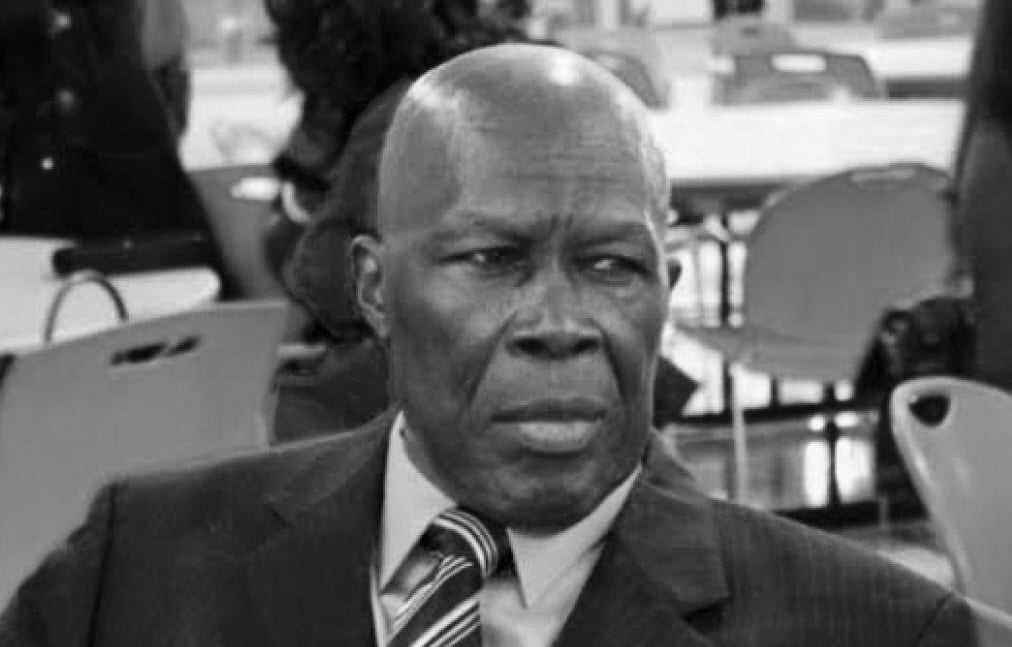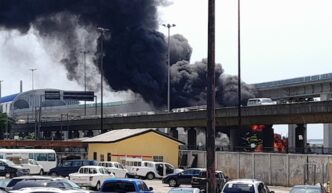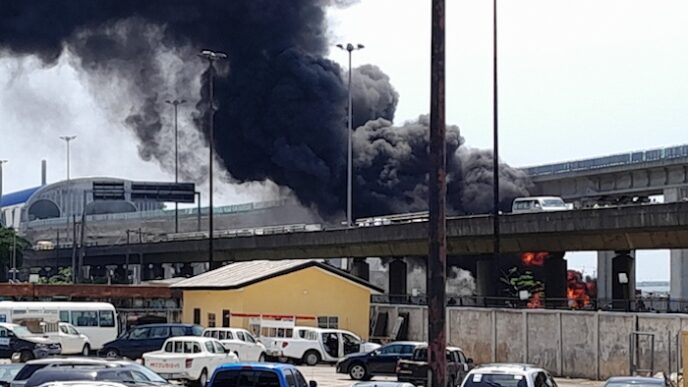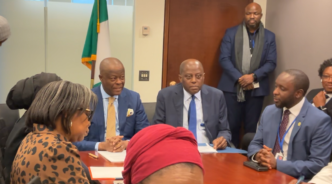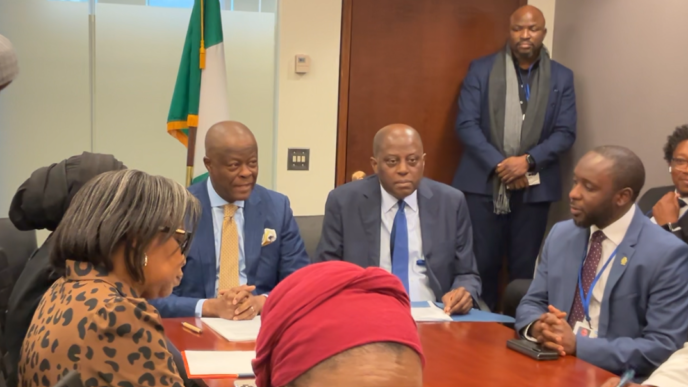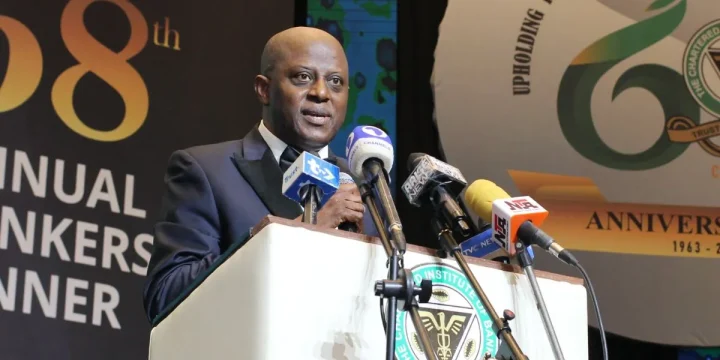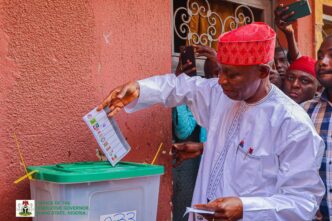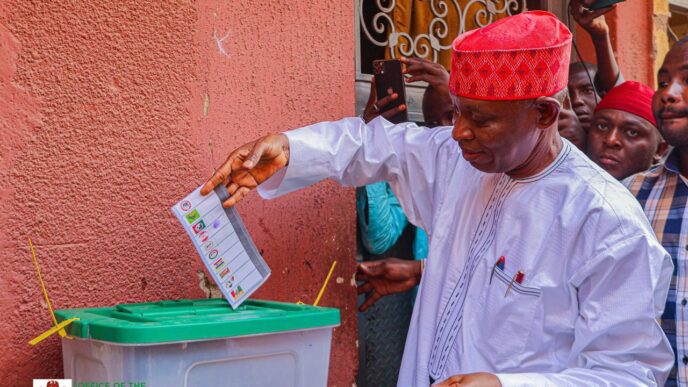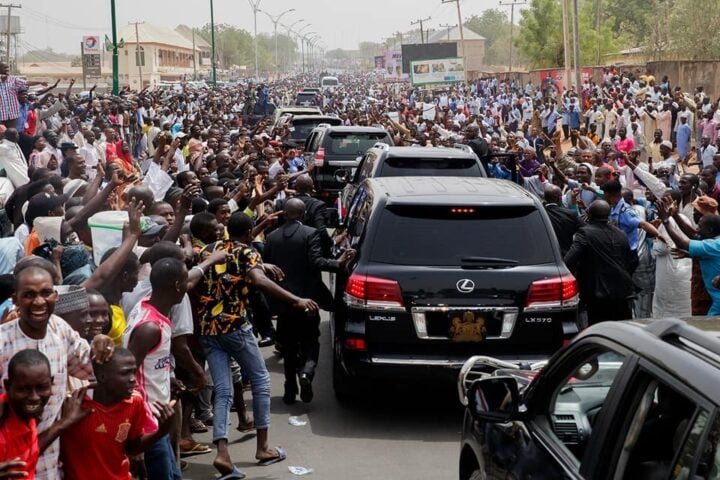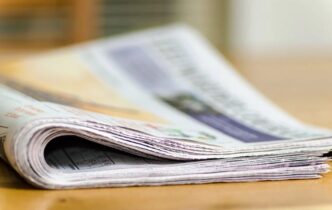On Thursday, Humphrey Nwosu, former chairman of the defunct National Electoral Commission (NEC), breathed his last in the United States at the age of 83. The name might sound strange to the new generation of Nigerians, but not to those who lived to witness one of Nigeria’s most iconic election — the June 12 election. Nwosu was at the centre of the drama as the man who spearheaded the conduct of the poll.
Despite his notable role in the June 12 election, Nwosu could be described as a man who rose from a royal background to become a scholar and later an electoral umpire.
EARLY LIFE AND MARRIAGE

Nwosu was born on October 2, 1941 in Ajali community of Orumba-north LGA of Enugu state. His father was the traditional ruler of the community from 1920 to 1978. He finished his primary education in 1955 at Presbyterian Primary School, Abakaliki, Ebonyi, where he was living with his brother.
Advertisement
In 1963, he began his tertiary education at UNN, where he studied political science and finished in 1966 as the second-best graduating student.
Upon graduation, he was employed by Shell BP in Port Harcourt, Rivers state.
He first met his wife, Stella, at a Christmas event on December 24, 1966, in Anambra state. Stella was a school teacher. It was love at first sight. They got engaged two years later and took their vows on May 31, 1969, in the heat of the Nigerian Civil War.
Advertisement
At the end of the war, Nwosu’s contract with Shell ended and the couple moved to Nsukka where he took up an assistant lecturer role at UNN in 1970.
He won an Agri Fellowship to the US and the Commonwealth Scholarship to the UK at the same time. He opted for the former and his family moved to the US in 1972 where Nwosu pursued a doctorate degree at the University of California. Stella also enrolled at the Merritt College in Oakland.
The couple moved back to Nigeria in 1976 after Nwosu completed his PhD and returned to UNN as a senior lecturer.
On June 8, 2019, the couple celebrated their 50th wedding anniversary in a grand event in Maryland, US. They have four children.
Advertisement
Nwosu had served as the commissioner for local government and chieftaincy matters between 1986 and 1988, and later as and commissioner for agriculture in the old Anambra state.
JUNE 12 SAGA: HOW NWOSU BECAME A NATIONAL FIGURE
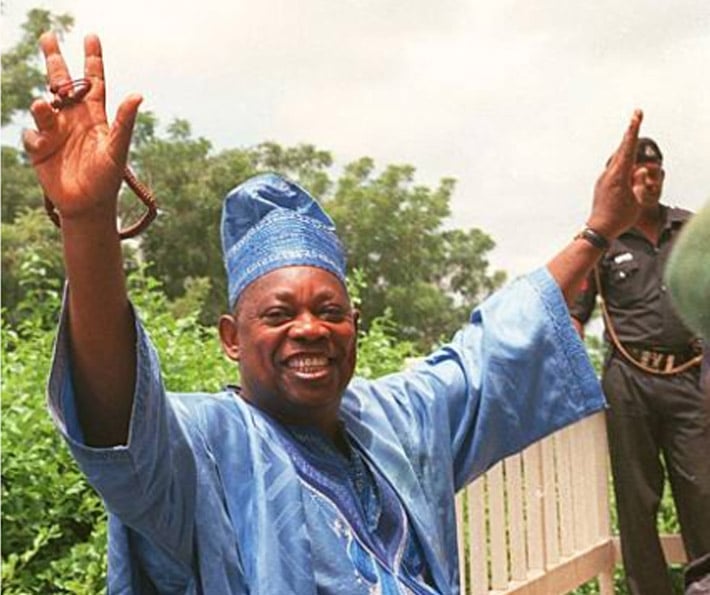
His journey into prominence began in 1989, having lived much of a quiet life as a university teacher.
Ibrahim Babangida, former military president popularly known as IBB, having ousted Muhammadu Buhari in the 1985 coup detat, had pledged a swift return to civilian rule. As the nation grappled with the transition, the NEC needed a chairman to spearhead the election that would usher the country into its third republic. That was when the search that brought Nwosu into Nigeria’s political and historical space began.
Advertisement
A professor of political science, undoubtedly, his understanding of Nigeria’s political nuances was of utmost relevance to the role he was to assume.
On February 28, 1989, Nwosu was appointed NEC chair to succeed Eme Awa, his former teacher and colleague, who resigned following a disagreement with Babangida. Nwosu was 48 years old then.
Advertisement
“I saw my appointment as an opportunity to participate in carrying out major electoral reforms that would restore the confidence of generality of Nigerians in the electoral process. In accepting the appointment, I felt in my innermost heart that I owed accountability to three levels of authorities. The first authority was the Nigerian state. I strongly believe in the Nigerian state and the Nigerian nation. The two are more enduring than individuals and societal historic groups as well as regions. I was, therefore, determined that in doing my job at the National Electoral Commission (NEC), the interest of Nigeria and Nigerians would be uppermost in my mind,” Nwosu wrote in his book, ‘Laying the Foundation for Nigeria’s Democracy: My account of June 12, 1993 presidential election and its annulment’.
Having made all necessary arrangements to see to the seamless conduct of the elections, Nwosu was confident that all the efforts put in by him and his team would pay off. The logistics, voter registration and other aspects of the exercise were planned to be without shortcomings. Based on his design, the poll was already a success.
Advertisement
The election was between Bashir Tofa of the National Republican Convention (NRC) and Moshood Kashimawo Olawale (MKO) Abiola of the Social Democratic Party (SDP).
Nwosu proposed and implemented the Option A4 open balloting system, a modified version of the open ballot system, which allowed voters to queue behind posters of their preferred candidates and votes counted on the lines.
Advertisement
But on June 10, at 9pm, Justice Bassey Ikpeme of the Abuja High Court ruled on a suit by Arthur Nzeribe of the Association for Better Nigeria (ABN), ordering that the election be suspended.
In his account of what transpired, Nwosu said he tried without success to reach the president, and Clement Akpamgbo, attorney-general of the federation that evening.
The following morning, Nwosu said he met with the AGF who assured him that the election would hold. Akpamgbo had informed him of a meeting in Aso Rock at 10pm of that day.
Nwosu said the military was torn along two lines — those who wanted the elections and those who did not, alleging that the Sani Abacha group fell in the latter. Abacha was then Babangida’s defence minister.
According to Nwosu, uninvited, he went to the meeting which he said had Abacha, Babangida, some other top military leaders and politicians in attendance. He said he told them of the consequences of adhering to the court order and referenced Decree 13 which held that no court ruling can “affect the date or time of the holding of the election”.
He said after much deliberations and counterarguments, it was concluded and agreed at that meeting that NEC should proceed with the election.
Nwosu was resolute and stubborn about seeing the exercise to a reasonable conclusion.
“I was not invited to the meeting of June 11, 1993. I went there myself,” Nwosu said.
“The media didn’t help matters because even before…the previous day, they started condemning me that I colluded with the military to annul the election without hearing my own side, not knowing that without me going to that meeting, there wouldn’t have been June 12.”
The election held on June 12. Three days after, another interim order by the Abuja court restrained NEC from releasing the results of the presidential elections, after results from all states other than Taraba had been announced. Based on the announced results, Abiola was winning the poll.
Nwosu said he was called to a meeting of the National Defense and Security Council and asked if he was going ahead with the announcement of results to which he responded that “there is no provision of the highest ruling military body to vet the result.”
He asked that NEC be allowed to conclude the election and announce the results or that the military should “call Abiola to negotiate”.
According to Nwosu, the meeting held at Abacha’ s house and he kept shouting at him. “He said ‘shut up, who are you to tell us what to do? You are not a member of the national security council. The council and the court decided you should not conduct election, you went ahead to conduct the election and it is illegal. Go to Aso Rock where all of us will take a decision. Call all your national commissioners’,” Nwosu said.
On June 23, NEC was dissolved and Babangida announced the annulment of the election. Nwosu went into exile afterwards.
He said despite risking his life and standing up to the military, the work done by his commission is not appreciated by Nigerians. He added that the election was not controversial, but the annulment was.
“What other courage, what else would any normal person do?” Nwosu asked.
AN ‘UNCELEBRATED’ DEMOCRACY HERO
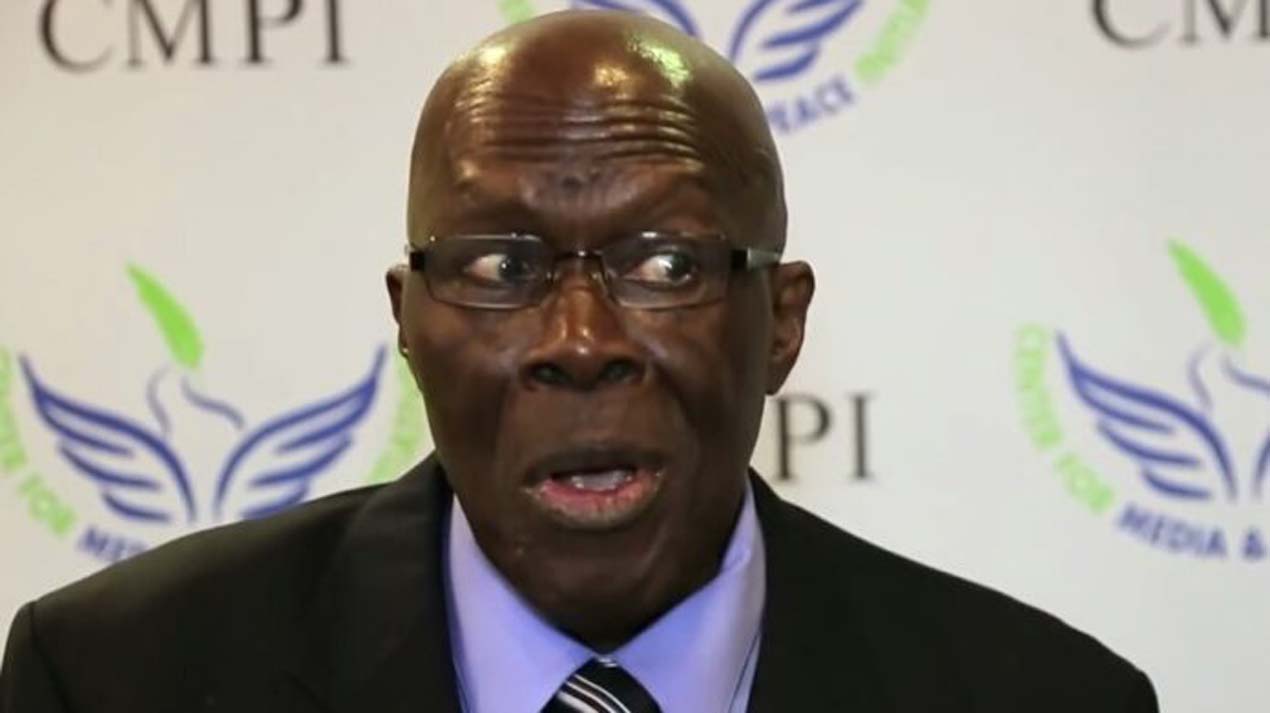
The expression, “give people their flowers while they are alive”, comes to bear in the case of Nwosu who many people describe as an unsung hero.
In June 2008, Nwosu had said that there would be no May 29 without June 12, and that the former date should be Nigeria’s democracy day.
“And so in my own view, June 12 was the day Nigerians decided freely for a democratic political order without any hindrance. That day should be Democracy Day. I don’t see anything that makes 29 May, 1999 superior to June 12, 1993. Without June 12, there wouldn’t have been May 29. In my view, it was an offshoot of June 12,” Nwosu said.
Ten years later, former President Muhammadu Buhari, declared June 12 Democracy Day in recognition of Abiola as the presumed winner of the poll. The federal government also awarded Abiola with the Grand Commander of the Federal Republic (GCFR) post-humous honour, while his running mate, Baba Gana Kingibe, was vested with a GCON. Late Gani Fawehinmi, a human rights lawyer and June 12 advocate was also awarded a GCON.
But there was no mention or recognition of Nwosu. He was only invited to the event which he said he was unable to attend because he was out of the country.
In a 2014 interview, Nwosu said “we were promised” national honours if the election was adjudged free and fair by both local and international observers.
What he got instead, was an arbitrary sack.
“There was no disengagement allowance, none till today. They didn’t pay me,” Nwosu said.
In July 2024, the house of representatives expressed reservations about what they argued was the unrecognition of the role Nwowu played in the outcome of the June 12 presidential election.
“The House is worried about the continued neglect of Prof Humphrey Nwosu, who put his life on the line to see that justice was not only done but seen to have been done,” said Peter Uzokwe, Anambra lawmaker who led the debate.
“The House is concerned that the National Anthem was changed, and we all pray to God to help us build a nation where no man is oppressed, yet Prof Humphrey Nwosu is still not celebrated while he is alive.
“The House is disturbed that not even a road is named after this hero of our democracy to date.”
The lawmakers had also asked the federal government to name the INEC headquarters after Nwosu and invite him to every Democracy Day celebration.
Nwosu was yet to be so recognised till he took his final breaths on Thursday.
In an opinion piece published in June, Wole Olaroye, a Nigerian journalist, said he had expected to meet Nwosu at the dinner marking the 2024 Democracy Day in commemoration of the June 12 struggle, but that instead, “his absence filled the State House Banquet Hall as if the pillars holding the rafters of the celebration were missing a couple of rods”.
NWOSU: WHY NIGERIA SHOULD RETURN TO A TWO-PARTY SYSTEM
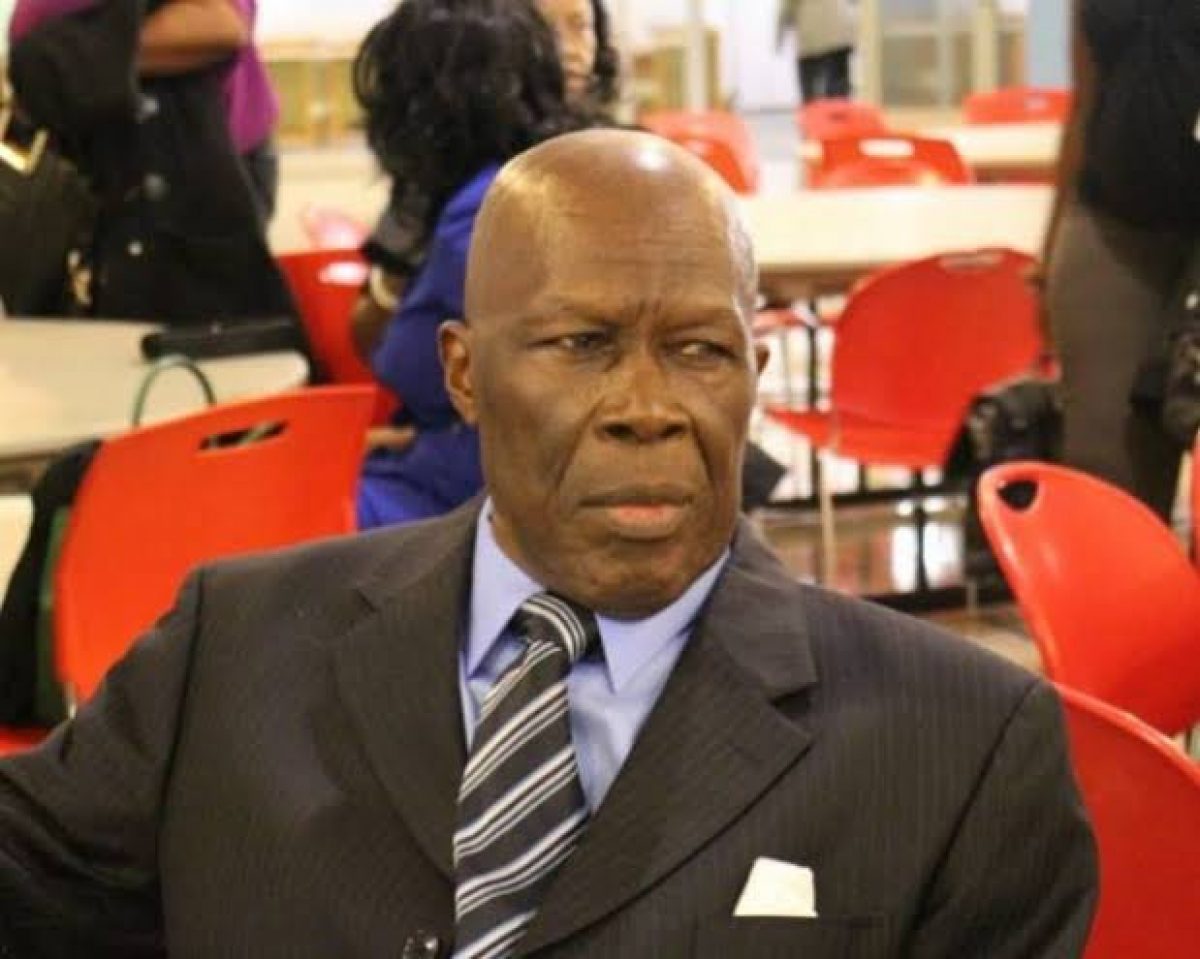
Nwosu has often canvassed that Nigeria returns to a two-party system, referencing the days of SDP and NRC.
He said unlike the SDP and NRC, the APC and PDP are only dominant, not national parties.
Nwosu also criticised the defection of politicians from one party to another, asking if that made them better leaders.
“The problem we’re having in Nigeria is that those two parties, APC and PDP, are dominant. They’re not truly national like NRC and SDP because they had structured membership from all states of the federation; they were balanced and no money bag or national leader was allowed to dump his money to influence who goes to the senate,” he said in 2014.
“… and unless we return to that, we’re not making any headway. Because those two parties, don’t you see how they change members? Governors move…does that reform you or make you better? They’d be moving and they have not stopped moving. Why are they not guided by ideologies and principles? They’re not, really.”
He said having as many as 90 political parties doesn’t make sense.
“I think we’re not building on strong foundations we laid in the past. In order to remove money bags and make sure that these parties serve the national interest, there were co-founders and co-owners; they were grassroots support; they were even funded by government and driven by ideologies. We laid this foundation, and we must give that credit to former President Babangida. Why should we go back to 93 parties.”
Even with the June 12 controversy, Nwosu believes Babangida would have been “father of modern Nigeria” if he had not chosen loyalty to his friend, Abacha, over the nation.

